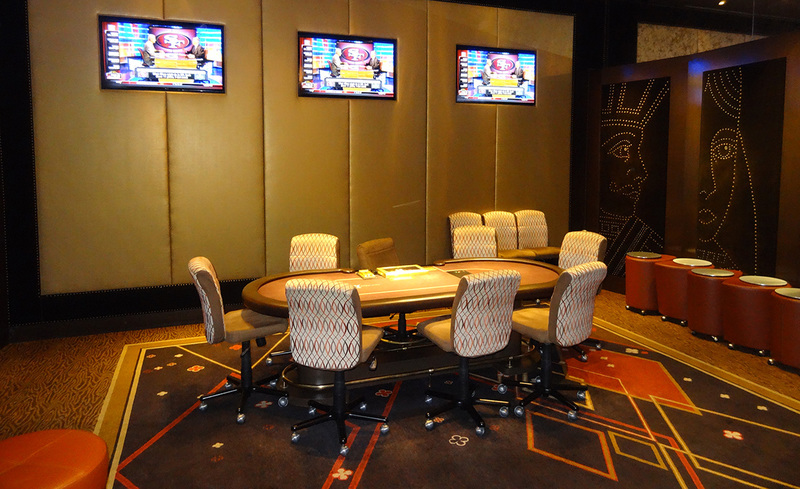






How A 1990s Gambling Lawsuit Against Donald Trump Sets Precedent For $3M Poker Debt CaseNevada Gaming Control Board To 'Monitor' Tsoukernik Litigation |
|
|

A legal battle over a contested $3 million heads-up poker game that involved an Australian poker pro, a Czech casino mogul and too much alcohol could conjure up a decades-old case against a casino formerly belonging to now President Donald Trump.
Back in 1995, a lawsuit against the then Trump Taj Mahal in Atlantic City was decided by the U.S. Court of Appeals for the Third Circuit, which ruled that a gambler could not recover his losses despite being intoxicated during play. The lawsuit, filed in 1993, was against the casino and Trump himself. The court ruling was written by current U.S. Supreme Court Justice Samuel Alito.
The litigation and subsequent ruling involved what is known as “dram shop” liability, which refers to a body of law applying to commercial establishments, including bars and taverns, that serve alcoholic beverages. In the case pitting gambler Ayhan Hakimoglu against the Taj Mahal and Trump, the Third Circuit ruled that dram shop liability didn’t extend to drinking and gambling.
“State courts had not extended dram shop liability beyond injuries from drunk driving and barroom accidents and brawls, and [New Jersey] had intensely regulated casinos without imposing liability for allowing gambling by intoxicated patrons,” the Third Circuit said.
That case set legal precedent for similar suits involving gamblers who racked up substantial losses while drunk, according to prominent Washington, D.C.-based gaming attorney Jeff Ifrah.
“Generally, claims that casinos serve too many drinks to gamblers have failed, as they should,” Ifrah said. “I think Aria casino is on safe grounds here.”
It’s worth noting that Nevada is one of a handful of U.S. states that doesn’t impose dram shop liability for businesses that furnish alcohol unless the incident causing injury involved a minor.
 Just last week, Czech casino owner Leon Tsoukernik filed suit against the Las Vegas Strip casino Aria for allegedly over-serving him during a high-stakes, early morning poker game against poker pro Matt Kirk. The Australian sued him in June, claiming that Tsoukernik racked up $3 million in debt from the game in the exclusive Ivey’s Room. Tsoukernik eventually fired back, and in the counterclaim against Kirk and the suit against Aria, he says he was taken advantage of due to his fatigue and drunkenness and should be entitled to damages “in excess of $10 million.”
Just last week, Czech casino owner Leon Tsoukernik filed suit against the Las Vegas Strip casino Aria for allegedly over-serving him during a high-stakes, early morning poker game against poker pro Matt Kirk. The Australian sued him in June, claiming that Tsoukernik racked up $3 million in debt from the game in the exclusive Ivey’s Room. Tsoukernik eventually fired back, and in the counterclaim against Kirk and the suit against Aria, he says he was taken advantage of due to his fatigue and drunkenness and should be entitled to damages “in excess of $10 million.”
Though the circumstances of the poker session are unusual, such cases are not unheard of in Nevada. There is a gaming regulation that deals with casinos permitting “visibly intoxicated” people to gamble, Nevada Gaming Control Board Chairman A.G. Burnett told Card Player.
Burnett said he couldn’t comment on ongoing litigation, but did allude to the fact that thanks to the regulation state officials have tools at their disposal to implement disciplinary action in cases where it’s deemed appropriate. That would be separate from whatever comes out of the courts.
“In many instances, the cases come to us directly in the form of a patron complaint, or in others, we learn of them because of civil litigation,” Burnett said. “Often there are debt collections issues that are the basis for the claims in court. Here, we will monitor the proceedings and as in any case we can conduct an investigation ourselves.”
The Alito opinion from 1995 also touched on several other challenges in bringing such litigation against a casino. In the case against the Trump Taj Mahal, the Third Circuit found that it would be “difficult” to show “proof of causation” because “sober gamblers can play well yet lose big, [and] intoxicated gamblers can still win big.”
Tsoukernik said that Kirk had a “dishonest and uncompetitive advantage” in their game.
Both Aria and Kirk’s legal team have yet to file responses to Tsoukernik’s litigation.
